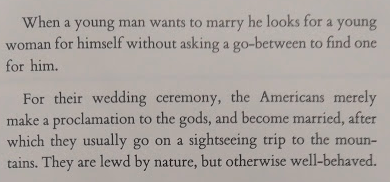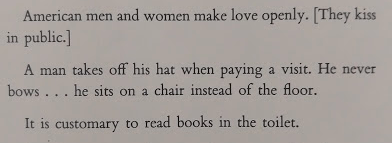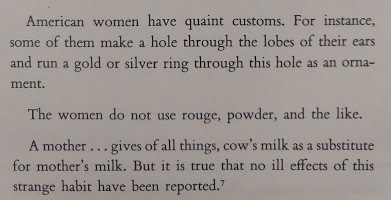" Four nine-inch and thirty-eight eight-inch guns, plus a large array of smaller ones made the squadron the most powerful Washington has ever sent on a mission abroad " - George Feifer, author of Breaking Open Japan [2006]
Japanese Response
Perry's actions threw the shogunate into turmoil. Never before had foreign nations brashly denied Japanese government.
" The Emperor was given a copy of President Fillmore's letter. This was most unusual, for the divine ruler of the Land of the Rising Sun was not supposed to be bothered with current events. But the government was so distressed at the crisis caused by the Black Ships that it hoped the Emperor would ask the gods for help" - Blumberg [1985]
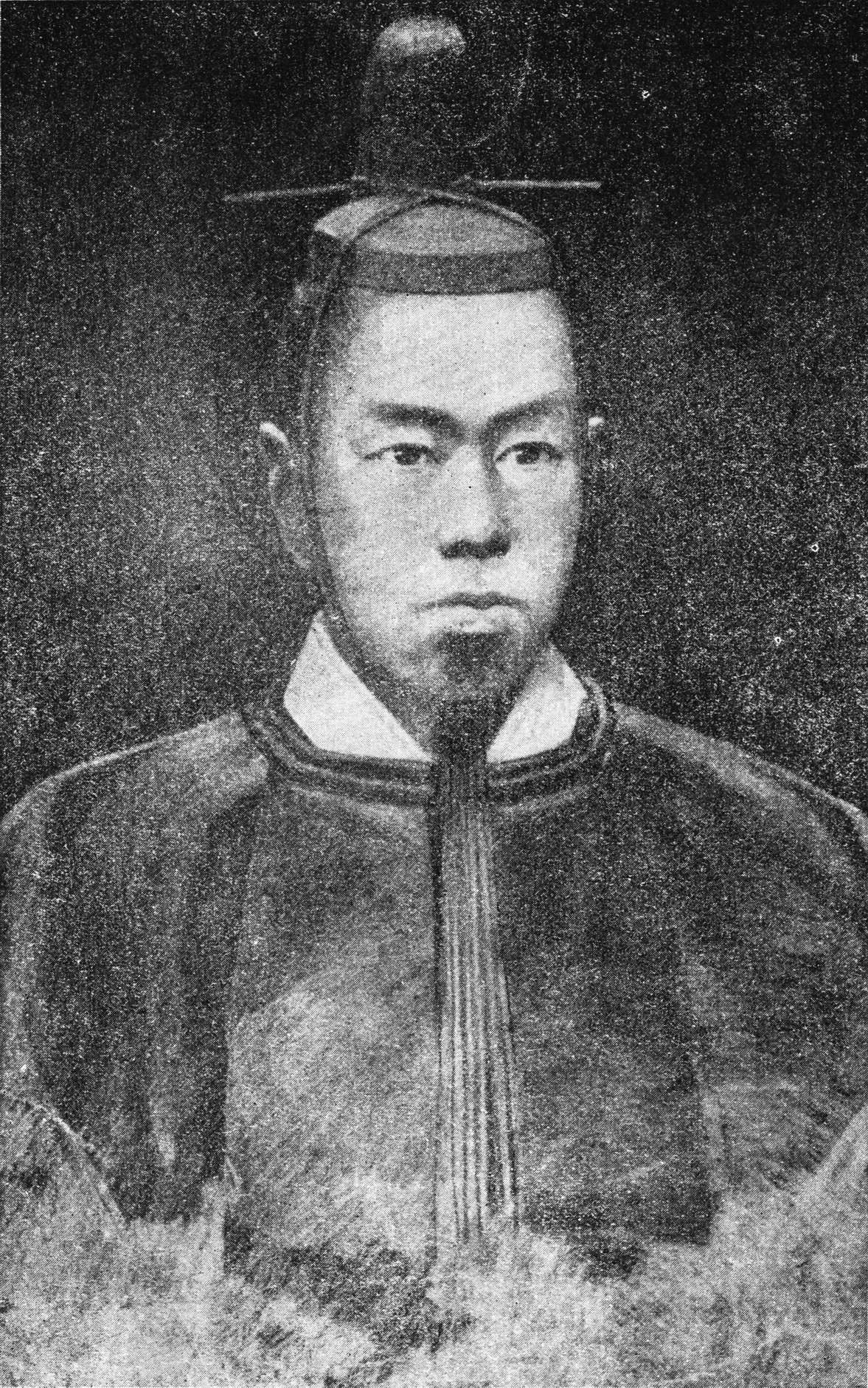
Emperor Komei of Japan
Hakubunkan, The Sun [Feb 20, 1897]
Wikipedia
" We know that the ancient laws of your imperial majesty’s government do not allow of foreign trade, except with the Chinese and the Dutch; but as the state of the world changes and new governments are formed, it seems to be wise, from time to time, to make new laws" - President Millard Fillmore's Letter to Japan [1853]
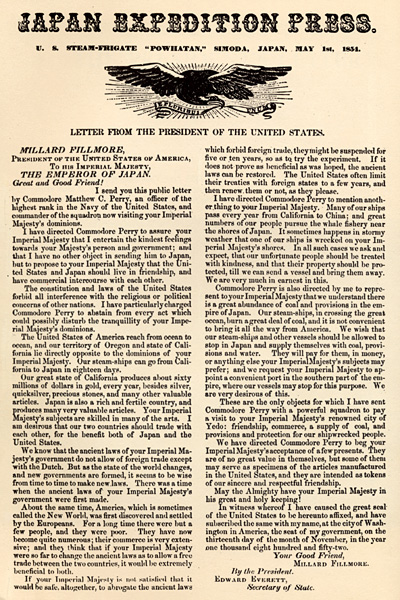
Millard Fillmore's Letter to Japan
Millard Fillmore [1853]
MIT Visualizing Cultures
The shogunate asked its feudal lords, daimyos, for advice. The daimyos were split in opinions, and the government's deviance from autonomy was perceived as weak.
" Shortly after Commodore Perry's ships sailed away, the Shogun's advisers distributed translations of President Fillmore's letter to all daimyos and asked for their opinions…Never before had a Tokugawa government asked feudal lords for advice. But the shogunate realized that while the country was in no position to defend itself against a foreign power, it could not maintain a seclusion policy without risking war…The daimyos consulted scholarly samurai before writing recommendations. A few welcomed trade with the United States, while some wanted to postpone the decisions so the country could strengthen its defenses. Other insisted on maintaining the country's complete isolation, even if it meant war" - Blumberg [1985]
The US's commerical goal looked bleak because of Japan's internal confusion. However, a man named Manjiro (shipwrecked in 1841, age 14) aided their cause. An American vessel had rescued him and he had lived 3 years in Fairhaven, Massachusetts, studying in an American school.
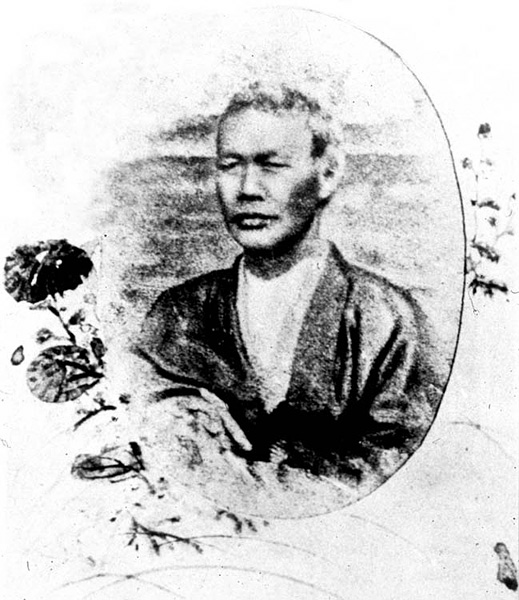
Manjiro
Unknown Artist [n.d.]
MIT Visualizing Cultures
" Manjiro loved America, but he became homesick and yearned to see his mother again. He arrranged for a ship to drop him off at Nagasaki. He risked his life, aware that Japan's Exclusion Edict decreed that 'He shall be executed who went to a foreign country and later returned home'…However, because of his vast knowledge of America, he was considered too valuable to kill...[and] was made a samurai" - Blumberg [1985]
The shogunate sought Manjiro's council, being the only person in Japan with experienced knowledge about the US. Manjiro remarked that Americans were friendly, although practiced strange customs.
" It has been a long cherished desire on the part of America to establish friendly relations…they have no desire to take land from another country…[they] are sturdy, vigorous, capable and warmhearted people...[but] there are hardly any foreign weapons that can frighten Americans out of their wits" - Manjiro [1853]
________________________________________________________________________________________________________________________________________________________________
Perry's unexpected and harsh arrival scattered Japan's authorities into a frenzy as they prepared a response for his return in spring.
________________________________________________________________________________________________________________________________________________________________
